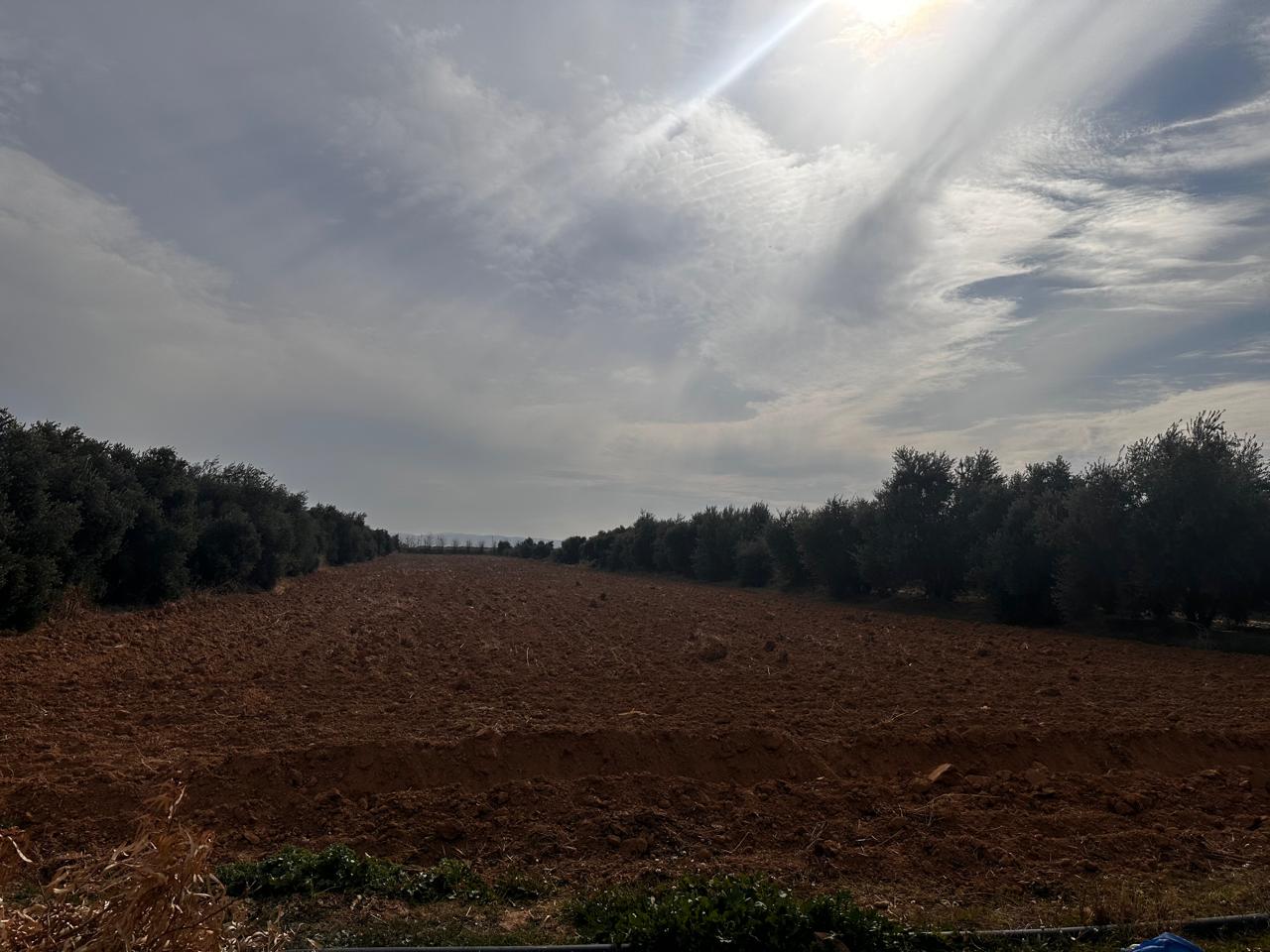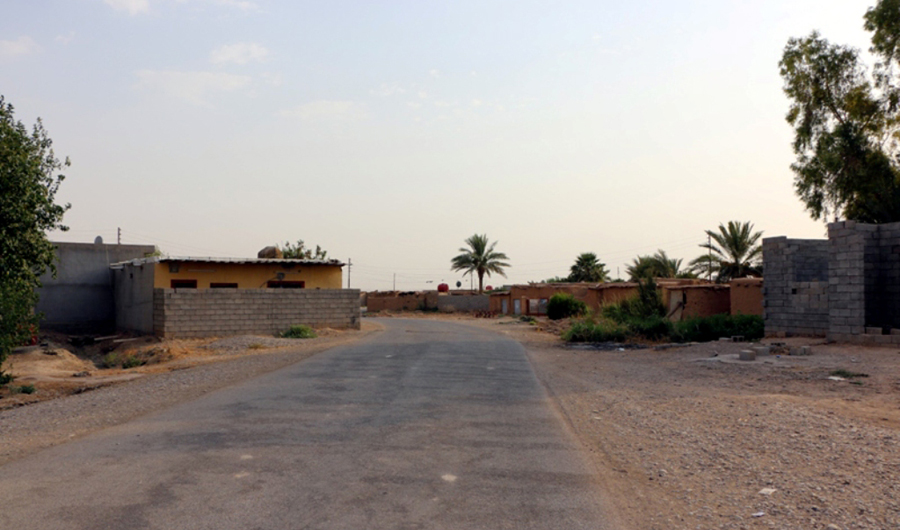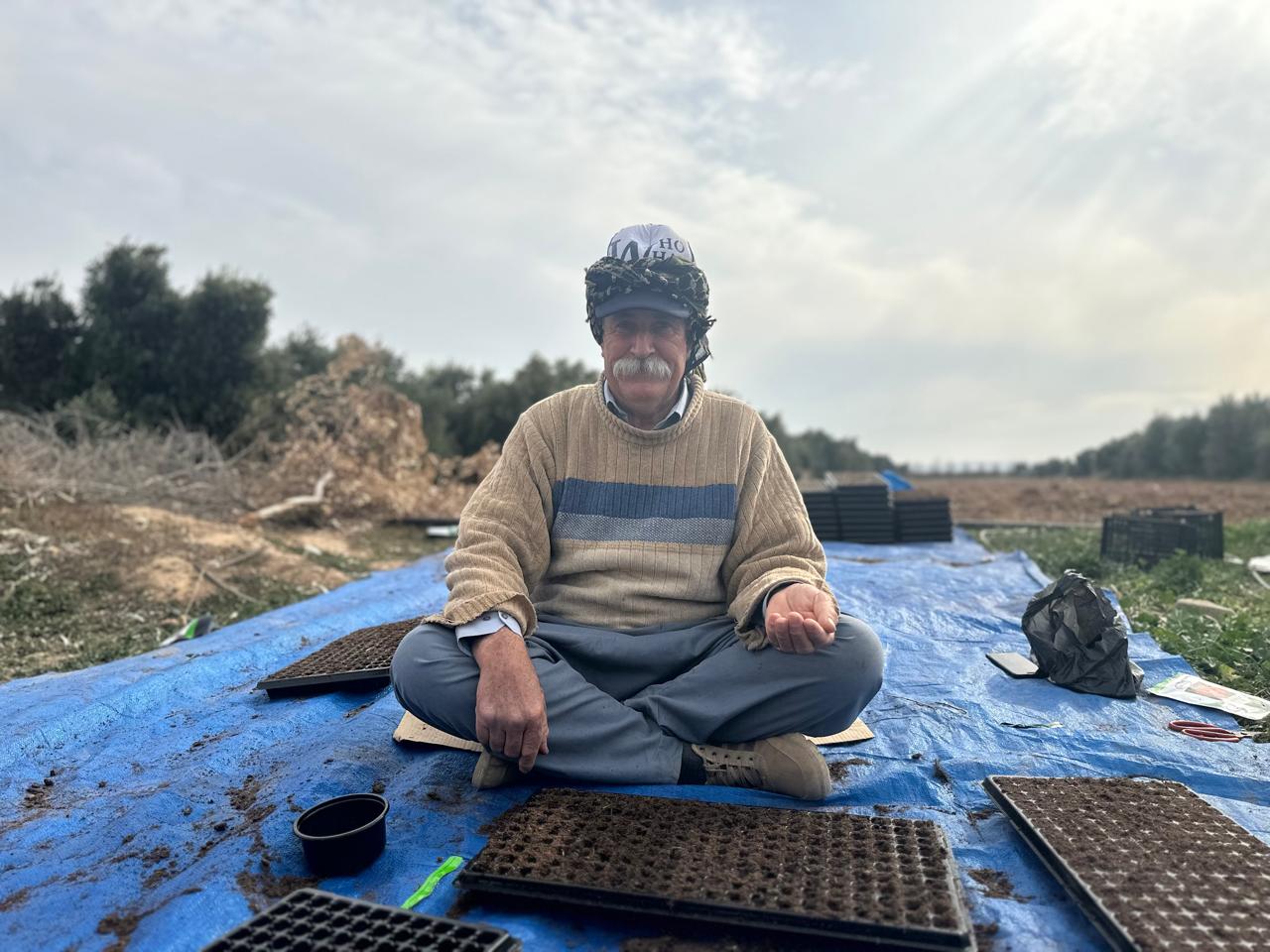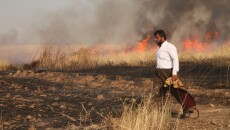Edan Mahmoud, a Kakayi farmer in Khanaqin, has been displaced twice but has not given up on reclaiming his ancestral farmland. He has many bitter memories of waiting for years to reclaim his land, and he is not confident that the new law will be implemented quickly and effectively.
“We are pleased that the decisions to occupy our land have been canceled by law, but we demand that it be implemented immediately,” he said.
He refers to the law on the return of land to its owners who were deprived of agricultural land under certain decisions of the revolutionary leadership (the dissolved Ba'athist party led by Saddam Hussein).
The law, along with two other controversial amendments, was passed by the Iraqi parliament on January 21, 2025, with prior agreement from the Shiite, Sunni, Kurdish, and Turkmen communities.
Mahmoud, 65, has been preparing seedlings in his family's olive grove in the Kakae village of Bahar Taze in southern Khanaqin, hoping to return to his ancestral land and cultivate it. He has not permanently left, as he occasionally visits his farmlands.
In October 2019, residents of Ramazan Kakaei village were forced to flee to Bahar Taze village due to threats of attacks by extremist militants of the Islamic State of Iraq and the Levant (ISIL).
We have been deprived of all assistance and support since then because the land contracts are still in the name of Arab farmers
“We got back our land in 2003 when the Arab farmers left, but we have been deprived of all assistance and support since then because the land contracts are still in the name of Arab farmers,” Mahmoud said.
He fears that delays might cause many problems for the implementation of the land restitution law. “We are demanding the implementation as soon as possible because we have been farming since 2003 and are deprived of all assistance,” he added.
The law of reclaiming farmlands has been suspended by the federal court prior to its publication in the official gazette. The Federal Court of Iraq ruled on February 4, 2025, that the three laws of the Personal Status Law, Amendment to the General Amnesty Law, and reclaiming farmlands will be suspended until complaints are resolved. They are rejecting those laws.
Sozan Mansour, spokeswoman of the Patriotic Union of Kurdistan (PUK) faction and an Iraqi parliamentarian from Khanaqin, told KirkukNow that the three laws have been appealed due to the voting process in the parliament.
All three laws will be resolved in court and then published in the official gazette and later implemented per issued recommendations.
“It will certainly take time to be implemented.”

Diyala, 2025: Kurdish farmer's agricultural land and farm in Khanaqin. KirkukNow
The law, which consists of several articles and is related to the annulment of the decisions of the Revolutionary Leadership Council led by Saddam Hussein, will return the land of farmers in Kirkuk and several other areas to their original owners.
According to the decisions of the Supreme Revolutionary Council and the Northern Affairs Committee during the Baath Party rule, agricultural lands of Kurdish and Turkmen farmers were contracted to Arab settlers from the middle and south of Iraq in the late 1970s. They were distributed as part of the process of deporting Kurdish and Turkmen families.
Sheikh Adnan Kakaei, a social figure in Khanaqin, said his family's land was occupied during the Ba'ath regime when they were evicted from Bahar Taze village in 1975, but they returned after 2003.
We are pleased with the law, and I hope it will be implemented
“We are pleased with the law, and I hope it will be implemented,” he told KirkukNow.
He has been sued by an Arab farmer for the use of agricultural land after 2003.
“It will be decided in my favor because the complainant himself admits that this is Kakaei land,” he defiantly added.
According to statistics from the agricultural land of Khanaqin agriculture department, over 2,000 agricultural land contracts were signed for Arab citizens from 1976 to 2003.
"The area covered by the law is about 30,000 donums (18,500 acres) of agricultural land around Khanaqin and all villages. We are waiting for instructions and decisions to reorganize the contracts in the name of Arab farmers to return to Kurdish farmers," said Naser Yousef, head of Khanaqin agriculture department.
According to agricultural records in Khanaqin, about 600 contracts of Kurdish farmers have been registered, and other farmers have lost their contracts.
Agricultural land is one of the most complicated issues in Kirkuk province and other disputed territories which has been pending for more than 20 years. This has led to several clashes and complaints between Kurdish, Arab, and Turkmen farmers.
Sheikh Hassan Ahmad, a member of the Surameri tribe in Khanaqin, told KirkukNow that thousands of acres of Kurdish land in the Aliawa plain and villages of the Surameri tribe were registered in the name of Arabs. They demanded compensation with agricultural land in Khanaqin, which coincided with the beginning of the process of degradation and displacement of Kurds.

Diyala, Summer 2019: Mardan village in Khanaqin after evacuation. KirkukNow
The issue of agricultural land remained pending until after the events of October 16, 2017, and the consequences of the independence referendum by the Kurdistan Regional Government KRG, when the Iraqi federal government returned to Kirkuk and all the disputed territories and ousted the Kurdish Asayish and Peshmarga. Arab farmers have been trying to regain their farmlands since then.
“After the events of 2017 in some villages, the Arabs returned and demanded Kurdish lands. We did not want to expand the conflicts. We always tried to resolve the issues through peace and dialogue,” Ahmad added.
The land restitution law covers thousands of acres of land in Kirkuk, Salahaddin, and Diyala provinces.
Mansour called the law a "good achievement to return the rights to their owners," which was initially a project only for Kirkuk and Duzkhurmatu, without Khanaqin and Mandali, but as Kurdish factions, we worked together to add Khanaqin and Mandali because many people of these areas had their lands confiscated per laws of Baath party.
"The law is not only in the interest of the Kurds but also the Arabs and Turkmen," she said.
Determining the ownership of agricultural land is part of the initial stages of Article 140 of the Iraqi constitution.






